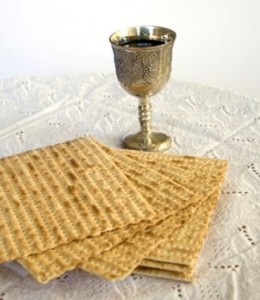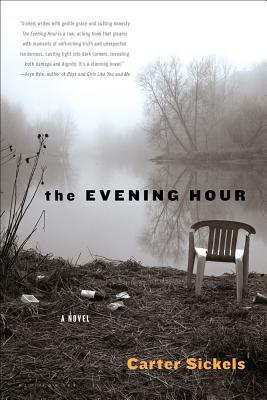I was planning to link to some Passover-themed short stories or poems, but it turns out they’re in short supply, at least in free textual online form. My own favorite ode to the holiday is William Finn’s song “Passover” from his heartbreaking song cycle Elegies. Like many of Finn’s songs, it packs the emotional punch and narrative depth of a short story into three minutes.
Instead of a story or song, I offer this excerpt from Rabbi Stephen Julius Stein’s 2008 essay “Truth in Storytelling”, from JewishJournal.com. This follows a discussion of some contradicting stories — and mixed messages — in Exodus 12:22 and 12:24 (and Stein’s choice use of the phrase “priomordial Darth Vader”). His question — “Is a fact more meaningful than a story?” seems relevant for fiction writers of any faith or lack thereof:
Here we engage the power, as well as the problem, of the question I’m often asked, “But rabbi, did it happen?” My response: “Is a fact more meaningful than a story?” For example, is a table more eloquent than the story of its genesis, from a seed in a forest to the person who harvested (and hopefully did not cut down) the tree, to the artistry of the carpenter who constructed it to the family who took possession of it — and to the myriad life experiences that took place around that carved wood?
Each time I confront my Introduction to Judaism classes with the story of the creation of Passover and of the challenge of deriving meaning from what is “true” vs. “truth,” I become more inspired by that very tale, whose so-called inconsistencies I bring to life. Just like us, our ancient forbearers lived in a messy, unkempt, imperfect world; just like us, they, too, struggled against overwhelming religious forces; just like us, they too were deeply concerned with existential identity and future.
So what did they do? They created a story, imbued with human drama and divine providence, weaving a timeless tapestry that in showing its seams, offers us — or perhaps, implores us — to be the next generation of weavers, creating a haggadah of meaning and truth for our time. It is surely no accident that the same Hebrew root forms both the words emunah (faith) and omanut (art). With a flick of the pen, Mitzrayim becomes m’tzorim: instead of Egypt the place, we can be in “narrow spaces,” “troubled places.” The resultant darkness, challenge and redemption can be drawn out in countless ways for many peoples, over dozens of generations.






